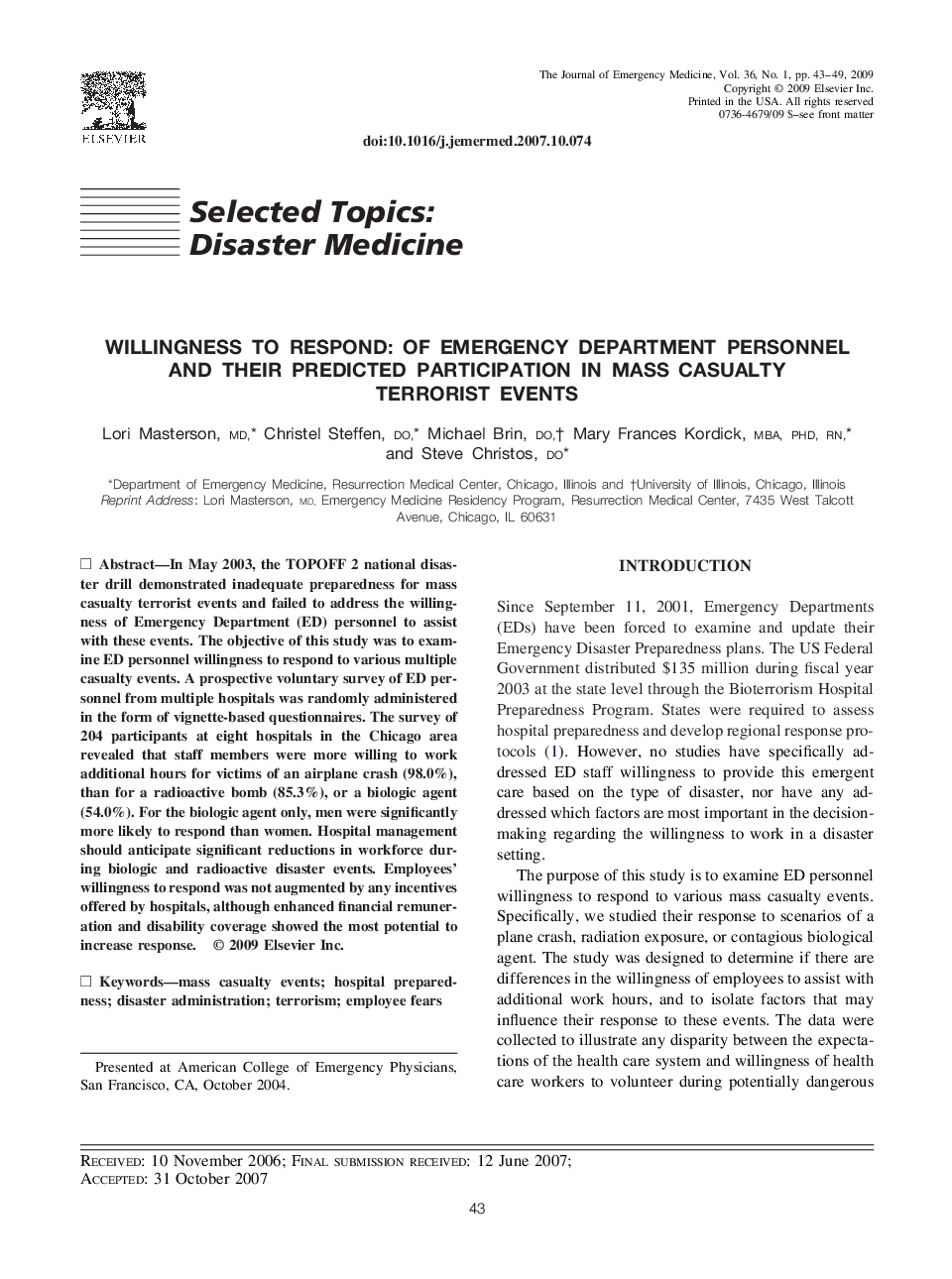| کد مقاله | کد نشریه | سال انتشار | مقاله انگلیسی | نسخه تمام متن |
|---|---|---|---|---|
| 3250174 | 1589196 | 2009 | 7 صفحه PDF | دانلود رایگان |

In May 2003, the TOPOFF 2 national disaster drill demonstrated inadequate preparedness for mass casualty terrorist events and failed to address the willingness of Emergency Department (ED) personnel to assist with these events. The objective of this study was to examine ED personnel willingness to respond to various multiple casualty events. A prospective voluntary survey of ED personnel from multiple hospitals was randomly administered in the form of vignette-based questionnaires. The survey of 204 participants at eight hospitals in the Chicago area revealed that staff members were more willing to work additional hours for victims of an airplane crash (98.0%), than for a radioactive bomb (85.3%), or a biologic agent (54.0%). For the biologic agent only, men were significantly more likely to respond than women. Hospital management should anticipate significant reductions in workforce during biologic and radioactive disaster events. Employees' willingness to respond was not augmented by any incentives offered by hospitals, although enhanced financial remuneration and disability coverage showed the most potential to increase response.
Journal: The Journal of Emergency Medicine - Volume 36, Issue 1, January 2009, Pages 43–49